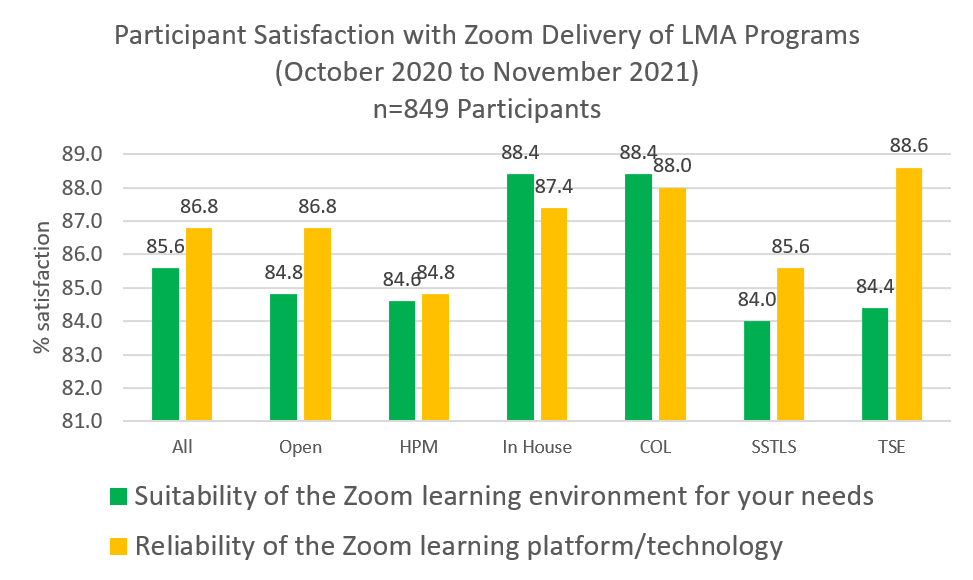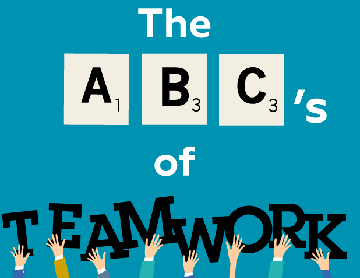April 2022 Issue
The Leading Edge
Responses to a “post – pandemic world”


As LMA enters our 50th year of operations, we find ourselves in a very different world – a “post-pandemic world”. So, in this edition of The Leading Edge, we offer further insights and suggestions to graduates, client organisations and their leaders, on managing through these pressing issues of the day.
In this edition
You’ll read more about our evolution as a nation and the leadership and organisational responses to an ever-changing landscape.
Please enjoy the following articles:
The New Normal - Life in a "post-pandemic world" (Part 2)
2022 has begun with several confronting world issues including the widespread impact of the Omicron variant(s) of COVID, significant climate events (major floods, fires and earthquakes), and the deeply disturbing actions taking place in Eastern Europe and Central Asia.
Locally, the impact of floods in large parts of New South Wales and Queensland will be felt for years to come. The nation’s charity and goodwill have again been on show as funds are raised and support is sought to cover the massive of clean-up and rebuilding activities needed.
As we work through and address each of these challenges, our new-found resilience is being tested time and again. Our character, which was bolstered during COVID-times, is thankfully much better equipped to bear the brunt of each successive imposition.
However, the reality of daily life is starting to take its toll on our sense of community and our ability to work for the collective good. Individual needs and focus on self and family are paramount and increasingly leading people to “bunker-down” or cocoon in order to “get through.”
Our challenge is to equip the leaders of today and tomorrow with the skills and tools to successfully weather even the most testing of conditions.
LMA’s Leadership Employment and Direction (L.E.A.D.) Survey has provided information and insights to leaders since 2000 to help develop their awareness of the issues and challenges facing them and their people. The L.E.A.D. Survey also provide suggestions and approaches leaders can use to address these issues and challenges proactively.
Given the major shifts we’re seeing through the Great Resignation and changes in models of work, LMA is keen to generate up-to-date information through a Special Edition of the L.E.A.D. Survey. We’d welcome your perspective on selected issues including recruitment and retention, people development and new working models by completing a short 5-minute questionnaire.
To those who respond to the survey within 30-days, we will provide a summary of the key statistics and their implications in the next edition of The Leading Edge.
Please click the button to complete the questionnaire.
"The Great Resignation” (Part 2)
In our previous edition, we wrote about “The Great Resignation” – the phenomenon of large numbers of employees in large numbers of organisations electing to redefine what work means to them. Many are executing career or role change to put new perspective into their worlds. We also wrote about the rise in personal considerations influencing such decisions. These include the drive for more family time, greater focus on personal goals/aspirations, and a stronger desire for variety in all areas of one’s life.
All these aspects continue to impact heavily on the ability to acquire, retain and develop the right talent needed to operate – regardless of industry or sector.
Many of LMA’s clients are reporting significant challenges in finding and securing the people resources they need to continue operating at current or pre-COVID levels, let alone grow.
One client in the talent recruitment sector has identified a vast gulf between the number of advertised positions to be filled and the number of available candidates to fill those positions. This is not just in pockets but is evident in most industries and at all organisational levels.
These pressures have, in many cases, created “bidding wars” or “highest offer wins” scenarios, placing leaders and managers in an unenviable position. They now need to fundamentally review what they are prepared to offer to new employees. They also need to establish how flexible they are prepared to be to attract the talent they need – even at the most basic operational levels.
Flexible work arrangements or models, more attractive packages, higher salaries, varied benefits and other inducements are all on the shopping lists of candidates. These “levers” provide the means for leaders and managers to inspire and appeal to an increasingly shallow candidate pool.
Leaders are also being forced to re-evaluate how they retain their current people. They are working hard to ensure their people remain committed, motivated and reliable thereby enabling the organisation’s stability. This in turn delivers more consistent operations and helps to crystallise how the Next Generation of productive team members will be retained and developed to sustain the organisation.
So, what’s your plan for dealing with the turbulence in your organisation? What are you prepared to offer to existing and potential new staff in order to retain and attract the talent you need to succeed?
Remote work/work from home (Part 2)
Following the article in our most recent edition of The Leading Edge about remote work/work from home in the COVID-normal environment, LMA was contacted by numerous leaders and managers. Many are grappling with remote team management and asked how they could effectively measure and monitor the performance of teams and individuals when they are working remotely. Whilst the answer will not be the same in all situations, there are several fundamentals that will set this type of working arrangement on the road to success.
The variety of potential Work from Home (WFH) arrangements is vast and requires careful thought when planning and implementing new conditions. Whatever the arrangement, there must be visibility, transparency and honesty from both employer and employee.
Nowadays, most employment contracts feature clauses or whole sections relating to employment conditions (including WFH provisions). Leaders must therefore understand and implement the essential elements of productive work and management habits for remotely located workers in the same way they would for those in the workplace.
Leaders and managers of remotely located teams and team members should at the very least be considering the following when deciding on the format of arrangements, measurement and monitoring of remotely located team members:
- Can the role and required work (in part or fully) be undertaken in a remote location/from home?
- Does the team member have suitable environmental conditions (technology, equipment, space, access to systems) to enable them to work effectively in a remote location?
- Am I comfortable enabling remote work/work from home for the team member (i.e., do I trust them to work as diligently/effectively as if they were at the workplace?)
- What are the most appropriate methods to measure individual performance when working remotely? What are the most appropriate methods to monitor and, where necessary, adjust performance when working remotely?
- How will performance be reported and discussed? How will feedback and follow-up be undertaken to sustain and improve as needed?
The mindsets of employers and employees regarding remote work have changed forever – largely for the positive, but often with nagging doubts about ongoing efficacy. Many fail to fully appreciate the importance of setting up the right conditions, approaches and reporting for remote work.
Getting the environment right will ensure both parties are on safe ground and comfortable with how it will work in practice. This should be the primary focus for leaders and managers contemplating remote work/WFH arrangements. Through better planning and implementation, leaders will be better able to tap into the needs of the Next Generation and provide conditions that amplify and extend the benefits for all.
COVID restrictions on traditional or normal work models have fundamentally changed the dynamics of the manager-team member relationship. LMA identified early on that many leaders and managers would need additional support in dealing with very different operational conditions. The Successfully Managing Remote Teams program was created to inform, support and provide practical advice, tools and techniques to managers of remotely located teams/team members. The program outlines important considerations when setting up for remote working/management and provides guidance on developing measurement, monitoring and reporting approaches.
Virtual Selling (Part 2)
The successes of organisations that made the switch to selling, partially or fully, via virtual means during and following COVID-times were highlighted in our most recent edition of The Leading Edge. Our contention – that it is possible to sell virtually to at least some extent in almost every industry – was well-received by readers. However, many sales professionals continue to hold to the belief that the only true way to sell is to be in-front of the customer or prospect in the flesh.
So why can’t we have both?
Can we make effective use of virtual selling platforms and methods and use face-to-face interaction to “close the sale” or “open the relationship”?
Absolutely we can. It is entirely possible, even desirable, to initiate contact and have preliminary conversations about customer needs and expectations virtually. Using virtual platforms to develop rapport and undertake discovery – the first two stages on the sales highway – enables the true sales professional to optimise time use. These methods also reduce the cost of identifying and approaching prospects. Then as the relationship strengthens and the impetus to “do business” accelerates, face-to-face interactions can seal the deal.
Clearly, organisations and their sales teams should make best use of the range of sales skills, tools and methods they have at their disposal to achieve targets and goals. But equally important is the consideration of new, different or improved methods of selling. Methods that leverage the virtual and digital tools and technologies available in the modern sales environment to embrace Next Generation thinking in sales.
LMA’s flagship sales program – The Sales Edge – offers the opportunity to develop skills in rapport-building, discovery, solution-generation and closing the sale/opening the relationship. And importantly, consideration is given to the best methods of approach, including virtual and digital methods, to optimise the time management and effectiveness of the true sales professional.
If you’re thinking about how virtual selling might benefit you, your team and your organisation consider offering The Sales Edge program to your team and contact your LMA representative. For further information about The Sales Edge, click here for the course brochure.
The first in our series on “The 15 Most Common Mistakes Managers Make”
Mistake Number 1 – BEING OUT OF TOUCH
In recent times, shortages of talent in many industries have meant that employees can be choosy when it comes to their jobs. Employees have increasingly been able to specify or demand conditions that enable them to fit work in with other aspects of their lives.
Many managers have fallen out of touch with their employee’s needs and wonder why they have a staff turnover problem…or why their people don’t want to work long hours or hang around for a drink after work, like they used to. They may feel that their team is ‘falling apart’. This mistake is a classic trap that managers fall into – they forget their employees are people with lives outside the organisation.
So what are some of the reasons for this mistake?
The nature of work and its role in people’s lives has changed enormously over the last decade or two. Where once work meant everything to an employee, and they often gave their lives to the organisation, nowadays things are different.
The need for flexibility in the workplace is paramount…part-time roles, flexible hours to enable pick-up and drop-off of children, new pre and post retirement work options…a plethora of alternative work models that could, understandably, send many an ‘old school’ manager’s head into a spin. Yet delivering this flexibility is essential to the needs of today’s employee.
“Ian the Insensitive” was becoming increasingly frustrated with his team. “I don’t know what more I have to do”, he moaned one day. “I’ve given them a job, I’ve given them training. We offer drinks on a Friday night. What else do they want?” Ian’s frustration, and his belief that he’s done all he could for the team illustrates the mistake – he hasn’t really invested the time to truly understand the individuals in his team and tune the organisation to their needs.
Remember, employees are merely volunteers in the organisation. Yes, they are paid, but they have the ultimate power…they can withdraw their resource at any time, for any reason.
So what can be done to avoid this mistake?
Among the options available to managers, many require an investment. The investment of time to get to know what makes people tick, what motivates them and how the organisation can “tune-in” to their lives, is critical.
But so too is the investment of the manager’s attention and focus – to commit to developing a greater connection with their people. Rather than just giving an impression of committing, managers need to actually commit.
To maximize the output of the team, managers also need to invest in tailoring the workplace to suit individuals. Happy workers are productive workers, and in today’s workplace, happiness may come from a variety of sources unrelated to the work itself.
“Ian the Insensitive” needs to find the spark that ignites the interest and engagement of each and every employee…is it the chance to earn more, is it the work itself, is it collaboration and teamwork or a combination of these?
With this knowledge, he can work with individuals to develop a work environment that they will be happy to ‘volunteer’ in for years to come.
Consider this approach. As a starting point, identify the top three people in the organisation that you’d prefer not to lose. Arrange a time with them to have a chat or go out for coffee and spend some time understanding their needs. Then do the same with other key people in the organisation.
In time, you’ll find you know more about the team and are more focused on providing conditions which satisfy their needs. The results will flow accordingly. Finally, encourage other managers in the organisation to do the same.
Being in touch with employees’ needs provides managers with the basis for productive relationships – the foundation on which high performance organisations are built. When a manager recognises and respects the needs of their people, they can better align the organisation with those needs and retain valuable people more easily. The ability to retain quality people is one of the greatest challenges currently facing organisations and a manager’s ability to hold on to their people is a key indicator of their effectiveness.
A keen understanding of the factors that motivate their people shows that a manager is in control and connected to their team. With this connection, the team is able to achieve much more than would be the case if the manager failed to understand.
Details of new and evolving models of learning and development
LMA’s nearly 50 years of experience tells us that training and development is very much an individual process. We know that the approaches used to develop people must be tailored to match the learning styles and preferences of the individual to maximise the benefits to the learner and the organisation. This has never been more important than currently. With organisations experiencing skills shortages and significant talent gaps, tailored learning experiences offer a powerful way to retain and develop staff rather than potentially lose them. Experiences that match the individual’s needs have become an expectation rather than an option.
Coinciding with changing working conditions and workplace environments is a demonstrable shift in the models and approaches used for learning and development. Training and development experiences have evolved to reflect the different working environments and the changing needs of team members – by necessity more than by choice. With the needs of younger/newer workers often being vastly different to those of experienced or longer-term employees, the methods and approaches used to develop talent must also be adapted to suit.
We’ve observed an exponential rise in the use of virtual delivery platforms to respond to changing work models and training and development environments. The many platforms available offer a variety of experiences and functionality, but all enable connection, collaboration and attention to the needs of individuals.
Changing client needs in relation to operational expediency and continuity, have delivered a shift in demand towards shorter and non-qualification courses to provide target/tailored learning experiences. These shorter programs offer the “shot of adrenalin” needed to reconnect teams and team members or address a specific challenge. They also build specific skills and competencies or simply signal that the organisation is committed to the growth and improvement of its people.
These evolutions in the learning and development space and the models and approaches being used are part of the new normal or Next Generation in delivery. The methods that helped get people to where they are today are no longer guaranteed to get them where they wish to go tomorrow – the challenge to make learning relevant, engaging, fun and impactful is ever-present.
LMA and Think Perform have incorporated virtual delivery via Zoom technology to enable programs to both commence and continue through ever-changing COVID conditions. Click here to review the Case Study – How LMA and Think Perform have managed through the pandemic, which showcases how we’ve assisted learners to continue to benefit from their organisations’ investment by adapting our Unique Learning Experience to suit the conditions.
A case study on the transition to virtual delivery and blended learning formats including some salutary lessons from LMA's and Think Perform's transition during the pandemic.
As COVID began to take hold in Australia in late March 2020, senior management at LMA and Think Perform had an important decision to make. Facing the very real prospect of being unable to deliver training and development programs in-person in venues or on worksites across the nation for an indeterminate period, our traditional face-to-face delivery methods looked to be in jeopardy.
Through extensive discussion and due to incredible strategic foresight, the decision was taken to convert our in-person experiences into the digital/virtual space and to become proficient in online facilitation. Significant research and investment in technology, training and upskilling of our team of gifted Facilitators, and provision of all necessary support, enabled a relatively smooth and seamless transition to virtual delivery.
After selecting Zoom as the platform for national delivery of Open programs (and most In-house programs also), we set about training and skilling the team to use the technology to its potential. One-on-one and group training and Zoom skills development sessions coupled with fortnightly Zoom forums meant Facilitators got rapidly up to speed and were able to adapt to this new “training and development room” called Zoom.
All our main programs migrated from face-to-face delivery to Zoom delivery providing a sound basis for comparison of the experience and some important intel on how well we had transitioned. Programs commencing from April 2020 onwards were almost exclusively Zoom delivered, often via a co-facilitated or team-teaching approach to ensure individual attention.
Fast forward two years and the stats tell a very pleasing story about the LMA experience delivered via Zoom. Satisfaction ratings for the suitability of the Zoom learning environment and the reliability of the platform/technology is the mid-high 80% range – a solid result for this very different method of delivery for LMA:
The lockdowns/lockouts from worksites across the nation coupled with travel restrictions had an even more profound effect on Think Perform delivery. Unable to be on-site to deliver lean performance improvement training and development programs, our Think Perform Facilitation Team turned their attention to continuous improvement activities of their own.
The challenge was to convert tried and tested processes for engaging and inspiring learners in the lean space, most of which reliant upon individual interaction, small group work and in-situ experiences and activities, into the virtual world. This was a much tougher proposition given the nature of the Participants and the environments in which they work.
Through dedication and focus, the Team has transitioned as much as they can to the “Zoomisphere”. This enabled continuity in many programs during lockdowns in several states and on many sites where manufacturing and production could continue but visitors were not allowed on-site.
Overall, the conversion to online delivery for almost all LMA programs and for segments of programs on a significant portion of Think Perform sites has been an unmitigated success. It has enabled us to effectively reinvent the business and position it to deal with any future challenges no matter how great or small – a true “Next Generation” approach for all.
Government funding opportunities from the recent Federal Budget.
Boosting Apprenticeship Commencements (BAC) funding extended to June 30, 2022
The Federal Government has announced it will further extend the highly successful and much sought after, Boosting Apprenticeship Commencements (BAC) wage subsidy to the end of the 2021-22 financial year (30 June 2022), providing eligible employers with a 50% wage subsidy for 12 months.
This is a further boost to businesses across Australia with more than 70,000 organisations so far taking up the funding to employee new staff and develop their people so far. The extension may provide your organisation with this same opportunity.
If you’d like to know more and check your organisation’s eligibility, please contact your LMA representative.
Tax Deductibility for Training and Developing in Small and Medium Enterprises
In the recent 2022-23 Australian Federal Budget, an announcement was made in relation to the tax deductibility of expenditure in training and development activities via the Small Business Skills and Training Boost.
Put simply, the Government will introduce a Skills and Training Boost to support small and medium-sized businesses to train and upskill their employees. The boost will apply to eligible expenditure incurred from 7:30pm (AEDT) on 29 March 2022 (i.e., Budget night) until 30 June 2024.
Small and medium-sized businesses (with aggregated annual turnover of less than $50 million) will be able to deduct an additional 20% of expenditure incurred on external training courses provided to their employees. The external training courses will need to be provided to employees in Australia or online and delivered by entities registered in Australia.
Some exclusions will apply, such as for in-house or on-the-job training and expenditure on external training courses for persons other than employees. For eligible expenditure incurred by 30 June 2022, the boost will be claimed in tax returns for the following income year. For eligible expenditure incurred between 1 July 2022 and 30 June 2024, the boost will be claimed in the income year in which the expenditure is incurred.
Further information can be obtained from the following link:
So, let’s continue to explore this new environment we face and prepare for the “Next Generation” in leadership, people development, sales, delivery, growth and resilience.
Grant Sexton, Founder and Executive Chairman of LMA
New learning experiences available through LMA and Think Perform

Throughout 2021 and early 2022, primarily in response to changes in the training packages that underpin our accredited programs, LMA has been updating and upgrading our main programs. All programs now draw on new and refreshed units of competency to provide courses that fulfil client needs and learner requirements.
Our consultation with industry, includes interaction with, and feedback from, our Clients and Participants along with various external and internal surveys and evaluations. This information has told us that our courses provide practical approaches, well-researched and articulated content and a range of tools and techniques that deliver measurable results and a quantifiable return on investment (ROI).
The Challenge of Leadership program (Certificate IV in Leadership and Management) has been rewritten to provide a fresh, modern take on leadership development. Our High Performance Management program (Diploma of Leadership and Management) continues to be the pinnacle of our suite of development programs – aimed at senior leaders and managers or managers of other managers. The Success Strategies for Team Leaders and Supervisors (Certificate III in Business) has undergone a significant revision to incorporate some very different units and topics to assist the emerging leader. And The Sales Edge (Certificate III in Business-to-Business Sales) provides solid foundations for sales skill development – for both experienced sales professionals and those taking their initial steps in the wonderful world of sales.
Our Diploma in Competitive Systems and Practices is well-advanced in development and when launched will offer Participants the chance to extend learnings from mainstream qualifications in the lean space (Certificate III and IV programs). Our other Think Perform programs continue to provide organisations with the knowledge and skills to minimise waste, develop better processes and streamline operations through enhanced flow. Programs in Warehousing Operations, Process Manufacturing and Competitive Systems and Practices provide organisations with flexibility in tailoring their investment in lean to maximise benefits.
If you’re interested in hearing more about the range of accredited programs offered by LMA and Think Perform, please contact your LMA representative.
During COVID, LMA has had the opportunity to develop additional short courses to add to a suite of topic-specific courses:
- Workplace Leadership Essentials – Five workshops of 3 hours duration focused on four core topics (leadership, time management, teamwork, communication and relationships) with the option to complete assessment activities to achieve a Statement of Attainment for three units of competency drawn from our Challenge of Leadership program.
- Successfully Managing Remote Teams – Three workshops of 2-2.5 hours duration focused on setting up for success when managing remotely located teams and team members. Digital resources are provided including content, checklists and other tools to help plan, implement, monitor and support those working from home or locations different to their line manager.
Our existing short courses provide targeted or focused development opportunities in several key areas as follows:
- Effective Team Development – Four workshops of 2.5 hours focused on teams and team leadership.
- Exceptional Customer Service – Four workshops of 2.5 hours focused on developing and implementing consistent high quality customer service. The option exists to complete assignments and assessments for two units of competency to achieve a Statement of Attainment.
- Above the Line Coaching and Mentoring – Four workshops of 2.5 hours focused on developing coaching and mentoring skills.
LMA’s Schedule of National Courses for the remainder of 2022 is available on the LMA website:
The LMA website (lma.biz) also provides further information about our range of accredited and non-accredited programs.
We explore Continuous Improvement through:
- Articles and insights on the theme of Continuous Improvement – for individuals, teams, departments and organisations.
- A Client Profile of one of LMA’s/Think Perform’s current clients that has enjoyed success in Continuous Improvement through partnering with us.
- The next of the “15 Most Common Mistakes Managers Make” related to change and improvement – Resisting Change
- And much, much more…












